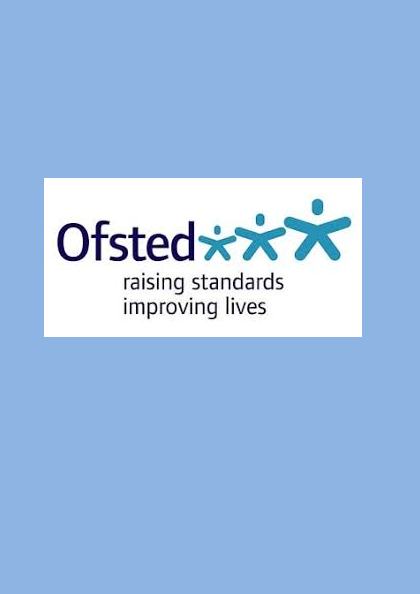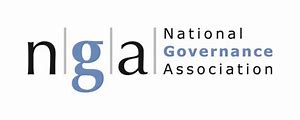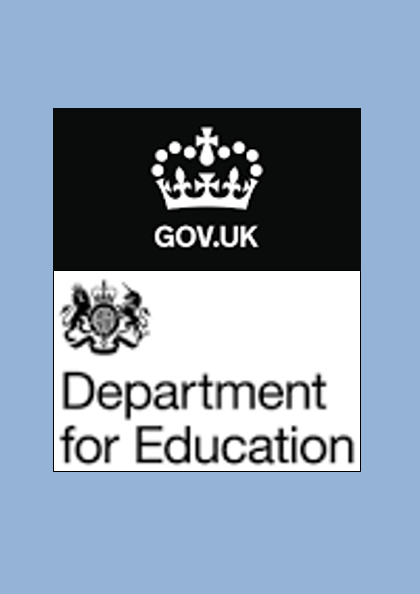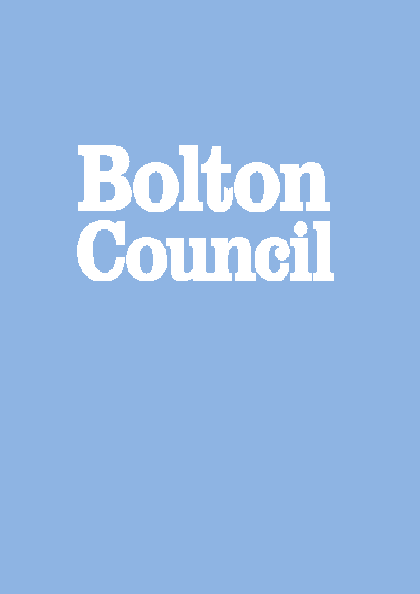Updates, News & Resources


SEND Bolton Local Offer
The Bolton Local Offer provides a single point for information to help families access details about services available to them, and offer guidance in multiple areas, such as:
- Early years places
- Schools (including academies and free schools)
- Colleges
- Health and care
- Leisure activities
The Local Offer also includes guidance for parents when they need to speak with practitioners and professionals and information on giving feedback, raising concerns and making complaints.
You can access the local offer website by following this LINK

Ofsted Webinar – Education Inspection Framework in Primary Schools
Ofsted published a webinar held on 28 March for schools on how inspectors inspect against the education inspection framework (EIF) in primary schools. The webinar Includes clarification on deep dives, subject leadership in primary schools, and early reading.
The Primary School Improvement Team advised, at the recent Head Teacher School Improvement Briefing, that the video might be a useful resource for those involved in the governance of a primary school or academy.
The webinar is available to view via the Ofsted’s YouTube Channel using the following LINK

NGA 20 and 21 Questions for Governing Board Self-Evaluation – 2022 Update
The NGA (National Governance Association) 20 and 21 questions are designed to be an integral part of governing boards reflecting on their practice. They cover key areas of board practice including the core functions of governance, board culture, structure, accountability, and impact. Evaluating board effectiveness is good practice and self-evaluation is one of the main methods that boards use to monitor and improve their governance.
The 20 and 21 questions were originally developed in 2012 and 2015 by NGA, The Key for School Governors and the All-Party Parliamentary Group (APPG) on Education Governance. The revised questions include an additional 16 questions for self-evaluation of those at academy committee level (local governing bodies) to encourage MATs to self-evaluate both layers of governance. The 2022 update of the questions follows an NGA consultation with members and colleagues across the sector. As a result of the feedback provided, the NGA have:
- developed a set of questions for academy committees (local governing bodies)
- constructed supporting guidance to help respondents ‘RAG’ rate their answers
The content of the questions has also changed, such that they:
- place greater emphasis on the importance of governance professionals
- emphasise the importance of board diversity
- reference board dynamics, culture and behaviours
- reflect best practice (supported by the new guidance)
The resource may be downloaded directly from the NGA website using the following LINK

What Governing Boards and School Leaders Should Expect From Each Other
The sixth edition of the popular guidance jointly produced by the NGA and the national professional organisations, which covers what governing boards and school leaders should expect from each other has been published. In a departure from the previous five editions, there are now two separate versions: one for governing boards and headteachers in single schools and federations and another for multi academy trust boards and CEOs. Both versions are focused on ensuring relationships between school leaders and governing boards are as effective as possible, and improve outcomes for children and young people, through:
- Respecting respective roles
- Working together to set a strategy
- Stakeholder engagement
- Ensuring your school/trust is a great place to work
- Making governance effective
- Ways of working
You can download the latest edition of the guidance directly from the NGA website using the following LINK
Schools White Paper – Opportunity for All
The Schools White Paper, Opportunity for All, sets out the Governments plans to make sure every child can reach the full height of their potential.
The release of a white paper marks the first such publication since 2016, providing a mixture of previously announced national policies, with a number of new ones. It contains some insight on the future of national education policy, building on the ambitions from the government for a “flourishing school system”. It also sets out the government’s plan for a fully trust based system.
Education Secretary Nadhim Zahawi said the release marked “levelling up in action” but the overall reception to the white paper has been mixed, with many sector commentators noting the lack of new announcements.
Further information and the press release can be found via the www.gov.uk website using the following LINK
Bernie Brown, Bolton Director for Children’s Services and Geraldine Whitehead, Assistant Director for Inclusive Education and Learning, recently wrote to all Head Teachers and Principals about the release of the White Paper and the exploration of opportunities for the Bolton family of schools and academies.
A copy of this letter can be viewed via the download (left)

Education Recovery in Schools 2022
Catch up strategies are continuing to be used effectively to identify areas of concern, but the wider impact of the pandemic is continuing to be felt, particularly in early years. Ofsted’s latest briefing on education recovery highlights overall clear signs of improvements but casts concern on the impact of high levels of absence on pupil mental health and behaviour. Ofsted chief inspector Amanda Spielman said she was “particularly worried about younger children’s development”. The report emphasizes the continuing impact on communication and language development as well as the negative implications for children’s personal, social and emotional development.
However, the report does indicate that school leaders are responding well by putting measures in place including staff modelling positive behaviour to develop the youngest pupils’ understanding of sharing and listening skills and creating calm atmospheres where possible.
You can view the full Ofsted briefing via the www.gov.uk website via the following LINK

The Green Paper – SEND Review: Right support, right place, right time
The long-awaited SEND Review was published this week with Nadhim Zahawi, Education Secretary, promising “a more inclusive and financially sustainable system, where every child and young person will have access to the right support, in the right place, at the right time”.
It sets out the government’s proposed reforms to SEND and AP provision and addresses three key challenges:
- outcomes for children and young people with SEN or in AP are poor
- navigating the SEND system and alternative provision is not a positive experience for children, young people and their families
- despite unprecedented investment, the system is not delivering value for money for children, young people and families
The delivery of the plans is set out in chapter 6 of the review and includes the publication of a national SEND and alternative provision delivery plan and a new National SEND Delivery Board.
Further information can be gained directly from the www.gov.uk website by following this LINK

Changes to the School Suspension and Permanent Exclusion Process
Statutory guidance describing temporary changes to the school suspensions and permanent exclusions process will not apply to suspensions and exclusions that occur from 25 March 2022 onwards. This brings an end to temporary arrangements regarding the use of remote access technology for meetings of governing boards and independent review panels (IRPs), unless the exclusion being considered occurred up to and inclusive of 24 March.
Governing boards and independent review panels must ensure that meetings take place within the normal statutory timescales described in the statutory guidance suspensions and permanent exclusions from maintained schools, academies and pupil referral units in England.
In response to the Timpson review of school exclusions, the government is working with sector experts to publish clearer, more consistent guidance. They have undertaken a consultation process with a view to proposed changes to the behaviour in schools guidance and the suspension and permanent exclusion guidance for England. The aim of this guidance is to support schools to:
- create positive behaviour cultures
- ensure suspensions and permanent exclusions are conducted in a lawful, reasonable and procedurally fair way

Secretary of State letter to LAs about children arriving from Ukraine
The Secretary of State for Education wrote to local authorities on 1 April about the right of children arriving from Ukraine to access education and childcare while in the UK. This letter sets out the Secretary of State’s expectation for local authorities to work with families arriving from Ukraine to enable the children to attend school as soon as possible.
The letter can be viewed directly from the www.gov.uk website by following this LINK

Welcome to Spring Term 2022
Dear Governor and Trustee
I wanted to begin by wishing you, our governors, trustees and leaders a Happy New Year. I hope you managed to have a good break over the festive period.
As we move from the autumn into the spring term, the country remains in ‘Plan B’ of the Governments COVID measures. We are aware that transmission rates in the north-west continue to rise and that schools are experiencing significant pressures in terms of staff absence and the implementation of additional COVID strategies. Again, we highlight the importance of well-being and ‘checking in’ on your leaders and governance colleagues to provide support or sometimes just a listening ear. As always, your Clerk is available for support and advice, as is myself and other members of the Governance Services Team.
The Local Authority encourages Boards to continue meeting virtually until further Government guidance is issued and transmission rates in the area decrease. All governance training and development sessions scheduled before spring half term will continue to be held virtually.
On behalf of the Team and the wider Children’s Services Department, I wish to thank you for your continued support to our schools and academies and we look forward to working with you throughout the year ahead.
John Ashworth, Governance Services Manager

DfE Press Release – New Measures to Reduce Pupil Absence
As part of the Education Secretary’s commitment to make school attendance his top priority, new expert attendance advisers with decades of first-hand experience are to begin work to reduce pupil absence.
They will work with local authorities and multi-academy trusts who have been identified as having potential to benefit from the support and who want to use the expertise of the advisers to help re-engage persistently absent pupils.
The Department has also identified schools with some of the greatest decreases in absence rates over a five-year period prior to the pandemic, and that have maintained their excellent approach. They will be sharing their approach with other schools in a variety of ways over the coming weeks and months, to help reduce high absence rates.
The full press release can be found directly from the www.gov.uk website by following this LINK

DfE Statutory Guidance – Cost of school uniforms
The Department for Education has produced statutory guidance, the purpose of which is to ensure the cost of school uniforms is reasonable and secures the best value for money.
This means that schools and their governing boards must have regard to it when developing and implementing their school and trust uniform policies. It should be read alongside the non-statutory guidance on school uniforms.
The guidance outlines the cost considerations which schools should consider when developing and implementing their uniform policies and managing their uniform supplier arrangements
The statutory guidance may be downloaded directly from the www.gov.uk website by following this LINK

A Guide to Engaging with Parents and Carers
The NGA has announced the publication of their joint guidance with Parentkind this week. Engaging with parents & carers, a guide for governing boards informs boards about the importance of engaging with parents as a feature of effective governance and methods that can be put in place to maintain those relationships.
This guidance is helpful for boards to take a practical approach to listen to parents’ views and take these into account during strategic decision making.
A copy of the guide may be downloaded directly from the NGA website by following this LINK

DfE Governance Update – November 2021
The DfE (Department for Education), as part of their regular governance update, have provided additional guidance to assist governors, trustees and school leaders in their governance roles. You may have already received this update if you are subscribed to the DfE GIAS (Get Information About Your Schools) system. The November briefing includes the following updates:
- Understanding your data: a guide for school governors and academy trustees updated
- National Leaders of Governance: eligibility for funded support and new designations
- Free services for finding skilled volunteers to become school governors and academy trustees
- Webinar for governors and trustees on implementing flexible working
- The View my financial insights (VMFI) tool has been updated with your latest data (academy trusts only)
- Update your information: Get Information about Schools (GIAS)
The guidance can be gained directly from the www.gov.uk website by following this LINK

Using Pupil Premium: DfE Guidance for School Leaders
The Department for Education has published advice for school leaders in managing the use of pupil premium (and recovery premium in the 2021 to 2022 academic year) in schools. The guidance may also be useful for governing boards, parents and local authorities who want to know how schools can use their pupil premium effectively and the reporting requirements. The Department has separate published guidance which gives a brief overview of the pupil premium. As in previous years, schools should continue to use the pupil premium to improve the attainment of disadvantaged pupils. For 2021 to 2022, schools are required to:
- use the recovery premium alongside pupil premium funding and report on the use of them as a single sum in the strategy statement
- use the DfE template to publish the strategy statement
- publish the strategy statement by 31 December 2021
- demonstrate how spending decisions are informed by a range of evidence
The guidance can be gained directly from the www.gov.uk website by following this LINK

Schools Financial Value Standard (SFVS) and Assurance Statement
The SFVS assists schools and local authorities to meet basic standards for good financial health and resource management. Local authority (LA) maintained schools must submit the schools financial value standard (SFVS) to the LA annually. Local authorities use this information to inform their programme of financial assessment and audit. For the financial year 2021 to 2022:
- schools should submit their SFVS to their local authority no later than 31 March 2022
- local authorities should submit their assurance statement to DfE within 6 weeks, no later than 31 May 202
This year the template has been updated for recording related party transactions. The ‘Dashboard guidance’ has been removed and there has been the addition of the ‘Template for recording related party transactions’. There is also updated ‘Checklist guidance’ with information for the new 2021 to 2022 financial year.
The guidance can be gained directly from the www.gov.uk website by following this LINK

Governance Services Update – Autumn 2021
Dear Governor and Trustee
Whilst reflecting on my introduction to the previous autumn term, it was apparent how optimistic I was about the year ahead. Little did I know that the challenges felt in summer 2020 would continue through the autumn term and move into spring and summer 2021. Schools and Academies once again felt a fresh wave of challenges with the pandemic, ensuring the safety of children and staff, whilst continuing teaching and learning via remote learning and in-school provision for vulnerable and key worker children.
The pressures for school leaders, teaching and non-teaching staff was palpable and at times relentless. Nevertheless, most schools remained open to our children, providing as much normality as possible. Governors and trustees supported their leaders and staff teams by conducting their strategic roles virtually but more importantly, I was heartened to receive positive feedback about how our strategic leaders were ‘checking in’ with genuine concern for staff well-being. The end of summer term could not come soon enough for many, and I hope all those involved in each school community had some much-needed respite from what had proved to be a difficult year.
Governance Services continued to provide support via virtual means throughout 2020/21, again with governors and trustees adapting well to the ‘new way of working’. The Team and I experienced many examples of exceptional governance in difficult times, with good virtual meeting conduct, continued training and development engagement and strong remote monitoring practice. Feedback has remained positive and the message from our governance volunteers is that a blended approach to services would be valued moving forward. With this in mind, and in line with the Government’s roadmap to recovery, we aim to continue to support both virtual and physical board meetings and provide a blend of face-to-face, live virtual and pre-recorded training and development events. We feel this will allow greater flexible and wider reaching support to our leaders, governors and trustees. The Chairs’ Briefing, Partnership Forum and Training & Development Lead Briefings will be a blend of face-to-face and virtual or pre-recorded events moving forward and feedback on this will continue to be sought.
So, from myself and the Team, I want to thank you for your support in 2020/21 and I wish you and your school and governance teams well for the year ahead.
John Ashworth, Governance Services Manager

DfE Governance Update – July 2021
The DfE (Department for Education), as part of their regular governance update, have provided additional guidance to assist governors, trustees and school leaders in their governance roles. You may have already received this update if you are subscribed to the DfE GIAS (Get Information About Your Schools) system. The July briefing includes the following updates:
- National Leaders of Governance (NLG) reform applications
- Academy Trust Handbook 2021
- Updated models of articles of association
- Keeping children safe in education guidance
- Consultation on proposed arrangement for exams 2022
- Guidance for trust partnerships
- Early career framework reforms
The guidance can be gained directly from the www.gov.uk website by following this LINK

DfE Keeping Children Safe in Education 2021
The Department for Education (DfE) have released the updated Keeping children safe in education (KCSIE) statutory guidance for schools and colleges on safeguarding children and safer recruitment.
The DfE have also updated their advice on sexual violence and sexual harassment between children in schools and colleges.
Both documents come into force from 1 September 2021 and can be gained by selecting the following links:
Keeping Children Safe in Education
Sexual Violence and Sexual Harassment between Children in Schools and Colleges

School Admissions Code 2021
The Department of Education (DfE) have published changes to the School Admissions Code which will come into effect from 1 September 2021.
The changes aim to improve the in-year admission process, particularly for vulnerable children. Admission authorities should familiarise themselves with the new provisions to ensure compliance.
The DfE have also published new guidance to help local authorities and other admission authorities process admission applications for children adopted from state care outside of England, and has updated guidance around the effective operation of Fair Access Protocols.
Further guidance may be downloaded via the following links:
Admissions Priority for Children from State Care Outside of England




